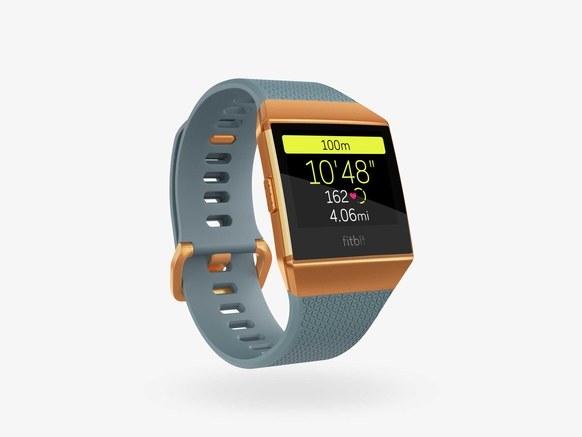WHEN YOUR ACTIVITY TRACKER BECOMES A PERSONAL MEDICAL DEVICE
December 18, 2017
Source: wired
 845
845

FITBIT SPENT ITS first decade selling activity trackers. With its latest moves, the company is starting to look less like a gear maker selling pricey accessories to fitness buffs and more like a medical-device company, catering to hospitals, patients, and health insurers. The company’s business-to-business arm, called Health Solutions, is now addressing four health conditions—sleep disorders including sleep apnea, diabetes, cardiovascular health and mental health—for employers, health insurers, healthcare providers, and researchers.
Fitbit has deals with insurers like UnitedHealthcare, which pays its clients up to $1,500 a year for hitting step-count goals. United has done years of research to calculate its return on these payouts, says Fitbit CEO James Park. “The business models are finally catching up to the data we have been collecting.” The next stage is to add in heart rate data, he says.
Fitbit’s newest product, the Ionic smartwatch, uses a blood-oxygen sensor to screen for sleep apnea and detect a type of heart arrhythmia. The company has completed clinical trials on the use cases and will submit them to the US Food and Drug Administration for approval. If it receives approval, Fitbits could replace expensive chest patch scanning to perform initial screenings for atrial fibrillation on some patients, Park says. The company’s data has been popular with cancer researchers.
There are plenty of reasons behind the company’s transition: For one, Fitbit will always battle high abandonment rates. (“Fitbit? More like Quitbit,” The Atlantic once quipped.) Fitbit’s sales of fitness trackers, and in turn, its stock price, have reflected that fatigue; revenue fell 22% last quarter and its stock is trading at a 77% discount to its opening price in 2014. But most important, the company needs to differentiate its offerings from the Apple Watch, which debuted in 2015 and has studies that address some of the same areas Fitbit is chasing. Fitbit beat Apple in the third quarter in terms of devices shipped, taking 13.7% of the market, according to IDC. Apple, which took 10.3% of the market, experienced a dramatic increase in sales, while Fitbit continues its decline.
By Ddu
Read more on
- No Fruits and Vegetables in your Diet may Lead to Sleepless Nights August 16, 2018
- Driven by drugs for lowering blood sugar and losing weight, the export value of Chinese Western medicine preparations has reached a record high February 2, 2026
- Chengdu Pioneer and Kangzhe Pharmaceutical have reached a cooperation agreement to leverage the DEL and HAILO platforms to empower the development of multi-target innovative drugs February 2, 2026
- J&J’s subcutaneous monoclonal antibody combination therapy receives further FDA approval; Autoimmune CAR-T therapy granted FDA Breakthrough Therapy Designation February 2, 2026
- Why is the development of AI-based antiviral drugs a niche field yet a necessity? February 1, 2026
your submission has already been received.
OK
Subscribe
Please enter a valid Email address!
Submit
The most relevant industry news & insight will be sent to you every two weeks.



